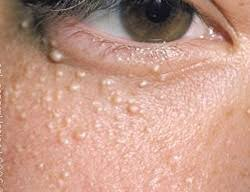Dementia
This is the most common neurological disorder in older adults; the most common neurological condition of all ages is headaches, including migraines. This is a
general term for memory loss, vocabulary, problem solving and other thinking abilities that are sufficiently extreme to interfere with everyday life.
Early signs of dementia / symptoms:
Symptoms of dementia vary according to cause, but typical signs and symptoms include:
Cognitive modifications:
• Memory loss typically found by a partner or another person
• Difficulty in word contact or word finding
• Visual and spatial difficulties, such as getting lost during driving
• Logical problems, or problem solving
• Managing Difficulty
• Difficulty coordinating and planning
• Coordination and motoring problems
• Confusion and misdirection
Psychological changes:
• Changes in Personality
• Depression
To know what could result from depression see our another article: Mental illness and depression
• Anxiety
• Inappropriate conduct/behavior
• Palsy/ Paranoia
• Wrestling/Agitation
• Breakdowns/Hallucination
Causes of dementia:
Major degenerative causes of dementia are following:
1. Alzheimer’s disease
2. Vascular dementia
3. Dementia with Lewy bodies
4. Frontotemporal dementia
5. Mixed dementia
1. Alzheimer’s disease:
Progressive loss of nerve cells occurs in Alzheimer's disease with no clear cause. Although not all causes of Alzheimer's disease are known, researchers do know that a small percentage is due to three-gene mutations, which can be passed on from parent to child. Although there are possibly several different genes involved in Alzheimer's disease, one important gene that raises the risk is apolipoprotein E4 (APOE).
There are different stages of Alzheimer’s disease
2. Vascular dementia:
Loss of brain function in vascular dementia occurs because of series of small strokes. This second most common form of dementia results from damage to the vessels that supply the brain with blood. Problems with the blood vessels may cause strokes or otherwise damaging the brain, such as by damaging the fibers in the white brain matter.
3. Lewy body dementia:
Lewy bodies are anomalous balloons such as protein clumps found in people with Lewy body dementia, Alzheimer's disease, and Parkinson's disease in the brains. This is one of the more severe forms of advanced dementia. Common signs and symptoms involve performing one's dreams in sleep, seeing objects that are not there (visual hallucinations), and focusing and concentration issues.
4. Frontotemporal dementia:
This is a category of diseases characterized by nerve cell breakdown (degeneration) and its connections in the brain's frontal and temporal lobes, the areas typically associated with personality, actions, and language. Common symptoms influence behavior, temperament, feeling, decision, language and motion.
5. Mixed dementia:
Autopsy analyses of the brains of people 80 and older who had dementia show that several had many factors, such as Alzheimer's disease, vascular dementia, and Lewy body dementia, in combination. Studies are ongoing to evaluate how the signs and treatments of having mixed dementia impact.
Other disorder link to dementia:
• Huntington’s disease
• Traumatic brain
• Parkinson’s disease
Risk factors for dementia:
❖ Age. The risk of Alzheimer’s disease, vascular dementia, and several others dementia goes up significantly with advancing age.
❖ Genetics/family history
❖ Smoking and alcohol use
❖ Atherosclerosis
❖ Cholesterol
❖ Plasma homocysteine
❖ Diabetes
❖ Mild cognitive impairment
❖ Vitamins and nutritional deficiencies
❖ Depression
❖ Cardiovascular risk factor
❖ Sleep apnea
❖ Diet and exercise
Prevention:
There's no sure way to prevent dementia, but there are steps you can take that might help.
• Keep your mind active
• Be physically and socially active
• Quit smoking
To know more about smoking see our article on Smoking a fashion or a disaster
• Get enough vitamins
• Manage cardiovascular risk factor
• Treat health condition
• Maintain a healthy diet
• Get quality sleep
Written by: Tanzeela Rasool












5 Comments
Very informative
ReplyDeleteMust read it
ReplyDeleteVery informative
ReplyDeleteVery informative ��
ReplyDeleteThanks
ReplyDeletecomment me if you want to learn more about it